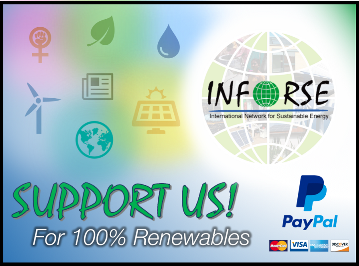|
|
|
|
|
|
|
|
|
|
|
|
|
|
|
|
|
|
|
|
|
| Follow Us: |
| Economic Incentives, Fair Pricing Needed | |
|
The cogeneration plant at the rice mill is a good example of how biomass can be used to the benefit of Thai society. Nowadays, Thailand has a policy on purchasing from small power producers (SPP) that aims to promote the use of indigenous and non-conventional sources of energy. Nonetheless, the regulation is still not favoring renewable energy at all. The buy-back price from the SPPs, who mainly depend on renewable energy, is much lower than the SPPs’, who mainly depend on fossil-fuel, due to their lower reliability as providers of electricity to power utilities. The price is also much lower than the marginal costs of power utilities. The low economic incentive from this unfair market regulation leads these SPPs to avoid investing in efficiency improvements and in expansion of new power plants. Therefore, the SENT network strongly suggests promoting sustainable energy development. The power price should reflect avoided costs of power utilities, including avoided capacity costs as well as avoided energy- and operation costs. Moreover, power price should reflect the “positive externality” e.g., the positive impacts of the technology; examples are the external environmental and social benefits from using renewable energy for power generation. According to an estimation from Rambøll, a Danish consulting company, if the fair pricing regulation has been implemented, the 3,000-MW potential will not be difficult to achieve. This will provide more jobs, especially in rural society, as well as significant reduction of greenhouse-gas emission. From this example, it is clear that the potentials for biomass power generation can be met through a marked shift in the use of power generation technology. Moreover, it is also clear that the problem of biomass energy development in Thailand is not about technology, because proven technologies are available on the market for efficient power production from many kinds of biomass resources. For these technologies to become viable, the major precondition is a power pricing policy, which allows a reasonable return on the investment for investors. Therefore, to develop sustainable energy in this country, the political movement is certainly not less important than technological development. |
|

| |
| Published in Sustainable Energy News |
|
|
Go back to main page of ISSUE #29 (684KB) 16 pages (2000-05-01) |
|
| Contact | |
| |
INFORSE Secretariat Klosterport 4F, 1. floor DK-8000 Aarhus C Denmark Phone: +45 86 22 70 00 Twitter: INFORSE_org Facebook: INFORSE Web: inforse.org E-mail: ove@inforse.org |
